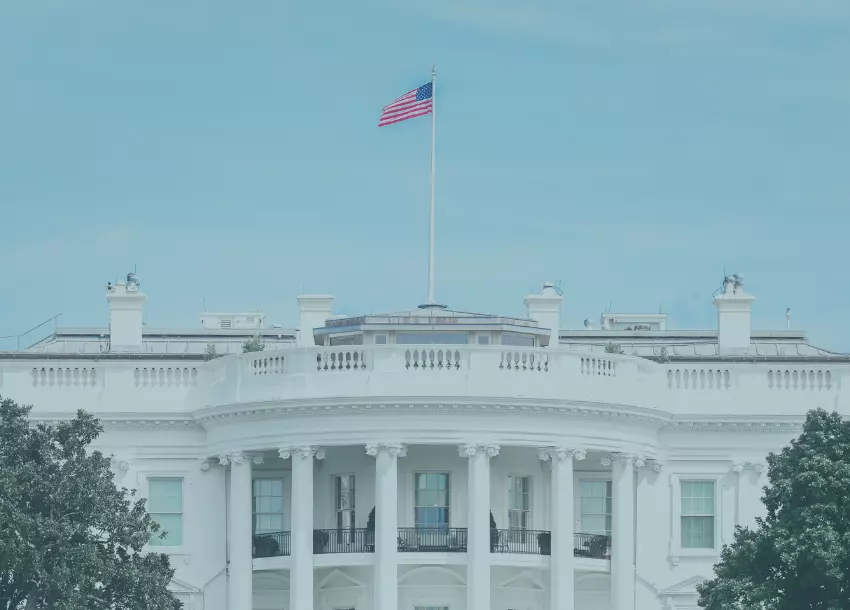The End of the COVID-19 Emergency Periods Impacts Employer-Sponsored Health Plans
President Biden has announced his intent to end two important COVID-19 emergency periods that have been in effect since early 2020: the Public Health Emergency (“PHE”) and the National Emergency (“NE”) as of May 11, 2023. The NE and PHE declarations granted the federal government the power to issue temporary rules affecting employer-sponsored health plans. The end of these emergency periods will impact employer-sponsored group health plans in a significant way as it will result in: (i) the end of the cost-free COVID-19 testing/vaccine mandates (as of May 11, 2023), and (ii) the end of the Outbreak Period extensions for several key health plan deadlines (as of July 10, 2023). As detailed below, the end of the NE and the PHE will require employer plan sponsors, third-party administrators, carriers, and other vendors to undertake an array of compliance efforts.
End of the PHE & the COVID-19 Testing/Vaccine Mandates
Beginning in 2020, the Families First Coronavirus Response Act required that all employer-sponsored group health plans (e.g., fully insured and self-insured plans) cover COVID-19 testing expenses without any cost-sharing during the PHE. Under this mandate, and during the duration of the PHE, group health plans could not impose any deductibles, copays, coinsurance, or any other form of out-of-pocket expenses on plan participants for their COVID-19 testing expenses. During the PHE, this mandate was extended to require that covered plans also cover, without any cost-sharing, preventative services related to COVID-19, including vaccines from out-of-network providers, as well as over-the-counter COVID-19 tests.
With the expiration of the PHE on May 11, 2023, these cost-free COVID-19 testing and vaccine coverage mandates will no longer apply. As such, beginning on and after May 11, 2023, group health plans can apply cost-sharing to these items and services. Notably, however, this change does not apply to non-grandfathered group health plans and their coverage of in-network COVID-19 vaccines, which must be provided without any cost-sharing pursuant to the ACA’s preventative services mandate.
The immediate next step for employer plan sponsors related to the end of the PHE and the COVID-19 testing and vaccine mandate is to determine if they want to continue to offer these items and services on a cost-free or low-cost basis. For some employers, continuing to provide this relief (in some form or to some extent) may make financial sense and be necessary to attract and retain employees; however, for others, it will simply be too costly. Plan sponsors should also consider how the end of federal subsidies for vaccine manufactures may increase plan costs in this regard.
Plan sponsors will need to review their plan documents to determine what, if any, updates will be needed. For plans that were amended to adopt provisions on these mandates, plan sponsors may need to further amend their plans to either remove these provisions completely or make other changes regarding coverage for COVID-19 testing and vaccines. Additionally, plan sponsors will need to notify plan participants of any material changes made to the plan. For example, if a plan will begin to apply cost-sharing on COVID-19 testing and/or out-of-network vaccines, it will need to inform participants (at least 60 days prior to implementation if this change will impact information contained in the plan’s Summary of Benefits and Coverage).
End of the NE & End of the Outbreak Period
In order to assist plan sponsors and participants in meeting their health plan and coverage-related obligations during the pandemic, the Departments of Labor and Health and Human Services, and the Internal Revenue Service established the Outbreak Period, which began on March 1, 2020 following the NE declaration. Pursuant to these rules, plans and participants are to “disregard” the Outbreak Period for the purpose of calculating certain health plan deadlines under HIPAA, COBRA, and ERISA.
This included: (i) the 44-day time period to provide the COBRA election notice; (ii) the 60-day period for electing COBRA following receipt of an election notice; (iii) 45-day period for making initial COBRA premium payments; (iv) 30-day grace period for making subsequent monthly COBRA premium payments; (v) the 30 and 60-day HIPAA special enrollment timeframes; and (vi) ERISA’s benefit claim and appeal review time periods. The maximum period of time that must be “disregarded” under these rules is the earlier of: (i) one year from the date the individual was first eligible for relief under the Outbreak Period, or (ii) the end of the Outbreak Period (which is 60 days following the end of the NE).
With the announced end of the NE being May 11, 2023, the Outbreak Period is set to end on July 10, 2023 (i.e., 60 days from the end of the NE). Accordingly, as of July 10, 2023, plans and participants will stop disregarding the Outbreak Period from their applicable HIPAA, COBRA, and ERISA deadline calculations and will revert to the normal statutory time frames. Below is an example of how this change will apply in a COBRA election context:
Bob is terminated and loses his coverage under the employer’s health plan. He receives his COBRA election notice on March 1, 2023. Under the normal deadlines, he has 60 days to elect COBRA continuation coverage following receipt of his COBRA election notice. While the Outbreak Period is ongoing, this election window is extended by disregarding the Outbreak Period. Accordingly, his COBRA election deadline will depend on whether the Outbreak Period ends before the one-year anniversary of his COBRA election right. In this case, the end of the Outbreak Period (on July 10, 2023) will come first, which means that as of July 10, 2023, the Outbreak Period is no longer disregarded for the purpose of calculating Bob’s 60-day COBRA election period. As such, Bob will have until September 8, 2023, 60 days following the end of the Outbreak Period, to elect COBRA.
Over the past few years, plan sponsors (along with their TPAs, consultants, and other vendors) have undertaken great efforts to comply with the Outbreak Period rules. They must now begin the significant task of winding down application of these rules and reverting to normal deadlines and procedures.
The first step in this process is to review plan documents, procedures, COBRA notices, and any other employee or plan communications to ensure these documents align with the pre-pandemic rules and deadlines once the NE ends. Like with the COVID-19 testing and vaccine mandates, employers will likely need to update their plan documents, forms, and notices to remove any language regarding the Outbreak Period rules. Specifically, with regard to COBRA administration, election forms will likely need revisions to reflect the pre-pandemic deadlines, and plan sponsors will need to notify their COBRA beneficiaries that the Outbreak Period extensions will no longer apply and new deadlines will be applicable as of July 10, 2023. Of course, plan sponsors should work alongside any TPAs and vendors, as well as their benefit consultants, to ensure they are prepared to align their internal administration processes with normal, pre-pandemic deadlines and procedures.
Although there is still some time before the PHE and NE end and these changes take effect, plan sponsors should use this lead time to make all efforts to prepare for the change and ensure their legal compliance.
About Maynard Nexsen
Maynard Nexsen is a full-service law firm of 600+ attorneys in 31 locations from coast to coast across the United States. Maynard Nexsen formed in 2023 when two successful, client-centered firms combined to form a powerful national team. Maynard Nexsen’s list of clients spans a wide range of industry sectors and includes both public and private companies.
Related Capabilities







